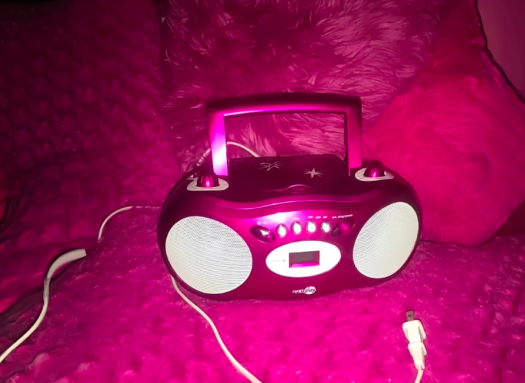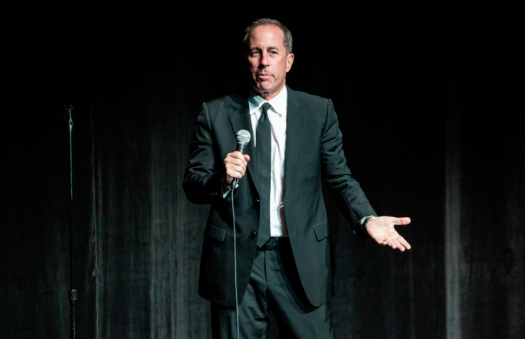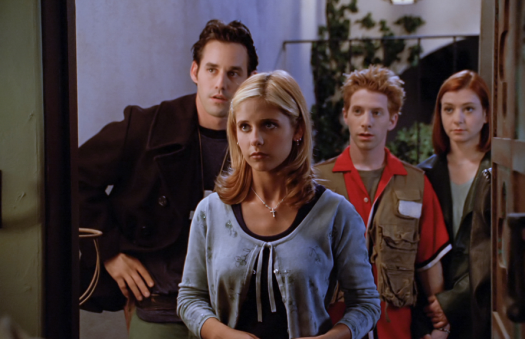Home recording is so ubiquitous and accessible that it's tempting to invest whatever disposable income you have into some gear and start your own musical revolution. It's easy to walk into your local music store and drop a wad of cash on equipment you've fantasised about in "gear porn" magazines. This is a surefire way to spend more than you need to. Before you give into the temptation to acquire the flashiest setup with which to spend all your waking hours, it's best to determine what you want out of your system.
Don't expect to build your dream studio all at once. Robin Easton runs Ratspace, a rehearsal and recording studio in Toronto, and has worked with a wide range of clients, from King Cobb Steelie to Wide Mouth Mason. He maintains that an effective home recording environment is "going to happen in stages, and you don't want the stages that your studio goes through to hamper what you do musically you want it to help. Look at what aspects you want to do at home, what's going to be convenient, what's going to be effective."
What Are Your Intentions?
Are you in a band that you'd like to record at home? Are you making music primarily by yourself? Are you a hobbyist, or do you intend to learn recording as a trade? If you just want to have fun, your cheapest option is your computer. Any computer, PC or Mac, bought within the last five years has incredible power as a recorder. Augmented by a sound card that's even slightly better than the one that came out of the box, and shareware for electronic sound generation and recording, you can mess around with sound files and burn them to a disc. However, progressing from that setup to something more meaningful still requires a reasonable cash outlay. Even that four-track cassette recorder from the pawn shop will set you back several hundred dollars once you get the microphones, stands, effects and cables to make it truly useful. For that kind of money, you might want to reconsider the tricked-out computer option.
If you plan on making your music public with a minimal budget and maximum flexibility, digital is likely the way to go. Disregarding the respective merits of the analog and digital processes (see FAQ), the advantages to digital are obvious. You can mix down right to a CD. The sound quality will be much better. You can exchange work amongst several collaborators and save multiple versions of your project. You can consult the internet for advice as you work. And of course, there's always the awesome power of "Undo." In short, for someone who's looking to do most of their work themselves, and not record others to a grand extent, the power of digitalia is hard to ignore.
Do I Want It All In One, Or A Modular Approach?
This is the most fundamental and potentially expensive decision you'll make: do I go with an all-in-one unit or with a modular system? Both have their advantages. A digital workstation has excellent sound quality, a built-in, automated mixing board and mic pre-amps, ridiculous multi-tracking capabilities, and built-in effects all in one box. Even a cassette portastudio has some of these advantages, which keeps the format relevant as a starter option. A computer-based or dedicated tape deck-based system requires greater investment in different types of gear or software, although this is precisely its charm.
Then again, there are disadvantages to every format. With the "one box" solution, a user is tied to a company's support system: proprietary devices such as hard drives and CD burners can be somewhat more expensive than generic ones. Its portability means backing up its contents obsessively, which costs you time. Their visual interfaces can be tiring to work with. There may also be limits to upgradeability in such a system.
With a computer-based system, you must still invest in good analog-to-digital converters and a mixing board. Since computers are designed for multiple tasks, they are vulnerable to driver conflicts, underpowered components, lack of upgradeability, and viruses if it is connected to the internet. In short, anything that can go wrong with a computer can derail your recording environment. For that reason alone, it's prudent to try and focus all your non-musical tasks onto another computer or at least partition your hard drive to minimise the risk of data loss or corruption.
With all mechanically-based analog systems, maintenance is paramount. You must learn how to calibrate recording heads, buy expensive reels of tape, and have access to more in-depth repair options. You'll have to further invest in some sort of mixdown deck. Of course, you'll have zero portability of your system.
What Lies Ahead?
At this point, you should consider the flexibility of the recording process. You don't have to have a pro calibre studio at home. There are tasks, like recording an entire band at once, where it makes more sense to go somewhere else better set up for those requirements. Post-production and mixing often makes more sense in a full scale studio with superior monitors and gear, an informed second opinion on your music, and a by-the-hour rate to hone your creative process. You should focus your expectations on what will give you the most bang for your buck at home, and when you will benefit from outside help (see FAQ).
These are some of the basic parameters to keep in mind when contemplating how to get started with a home studio. Do some research and figure out what's best for you. Next month, we'll get into the nuts and bolts of setting up the space and the more technical requirements of the recording process.
Frequently Asked Questions
No, really, what's better, digital or analog?
This still comes down to a matter of personal preference. Despite the advantages to the digital process suggested in the main article, analog recording is still very desirable. Ratspace's Robin Easton suggests: "If people literally compose from beginning to end and the structure doesn't change, particularly those who perform on acoustic instruments or in bands where there are arrangements and where you're recording live performances, then analog is still an option. For people who are into running machines, tape decks are cool!"
DIY or formal training?
You can muddle through a recording situation and come out with what you want based on sheer perseverance. However, some fundamental knowledge about your working methods can save you time and money if you can't get what you're looking for. This doesn't necessarily mean going to a recording school, but to seek mentorship. Says Easton: "If you're working in your home studio all the time, how are you going to learn anything? You can waste a lot of time and frustrate your own desire and produce bad results. It's better at key junctures to get expert advice. Sometimes money is better spent on having someone working with you in a studio than the money you'd spend renting gear two or three times to get correct something that didn't go down right the first time around."
What should you absolutely not do in a home studio?
Mastering. The final stage in a recording process is not for the novice. Mastering facilities possess ideal audio conditions and sublime gear. Mastering engineers have deciphered all sorts of audio conundrums in myriad forms of music. They possess fantastic sets of ears attuned to both aesthetic and technical issues. Sure, you might have mastering plug-ins included with your software to polish up your sound, but often you'll just end up perverting it. Only someone else can help you take that final step to greatness.
Don't expect to build your dream studio all at once. Robin Easton runs Ratspace, a rehearsal and recording studio in Toronto, and has worked with a wide range of clients, from King Cobb Steelie to Wide Mouth Mason. He maintains that an effective home recording environment is "going to happen in stages, and you don't want the stages that your studio goes through to hamper what you do musically you want it to help. Look at what aspects you want to do at home, what's going to be convenient, what's going to be effective."
What Are Your Intentions?
Are you in a band that you'd like to record at home? Are you making music primarily by yourself? Are you a hobbyist, or do you intend to learn recording as a trade? If you just want to have fun, your cheapest option is your computer. Any computer, PC or Mac, bought within the last five years has incredible power as a recorder. Augmented by a sound card that's even slightly better than the one that came out of the box, and shareware for electronic sound generation and recording, you can mess around with sound files and burn them to a disc. However, progressing from that setup to something more meaningful still requires a reasonable cash outlay. Even that four-track cassette recorder from the pawn shop will set you back several hundred dollars once you get the microphones, stands, effects and cables to make it truly useful. For that kind of money, you might want to reconsider the tricked-out computer option.
If you plan on making your music public with a minimal budget and maximum flexibility, digital is likely the way to go. Disregarding the respective merits of the analog and digital processes (see FAQ), the advantages to digital are obvious. You can mix down right to a CD. The sound quality will be much better. You can exchange work amongst several collaborators and save multiple versions of your project. You can consult the internet for advice as you work. And of course, there's always the awesome power of "Undo." In short, for someone who's looking to do most of their work themselves, and not record others to a grand extent, the power of digitalia is hard to ignore.
Do I Want It All In One, Or A Modular Approach?
This is the most fundamental and potentially expensive decision you'll make: do I go with an all-in-one unit or with a modular system? Both have their advantages. A digital workstation has excellent sound quality, a built-in, automated mixing board and mic pre-amps, ridiculous multi-tracking capabilities, and built-in effects all in one box. Even a cassette portastudio has some of these advantages, which keeps the format relevant as a starter option. A computer-based or dedicated tape deck-based system requires greater investment in different types of gear or software, although this is precisely its charm.
Then again, there are disadvantages to every format. With the "one box" solution, a user is tied to a company's support system: proprietary devices such as hard drives and CD burners can be somewhat more expensive than generic ones. Its portability means backing up its contents obsessively, which costs you time. Their visual interfaces can be tiring to work with. There may also be limits to upgradeability in such a system.
With a computer-based system, you must still invest in good analog-to-digital converters and a mixing board. Since computers are designed for multiple tasks, they are vulnerable to driver conflicts, underpowered components, lack of upgradeability, and viruses if it is connected to the internet. In short, anything that can go wrong with a computer can derail your recording environment. For that reason alone, it's prudent to try and focus all your non-musical tasks onto another computer or at least partition your hard drive to minimise the risk of data loss or corruption.
With all mechanically-based analog systems, maintenance is paramount. You must learn how to calibrate recording heads, buy expensive reels of tape, and have access to more in-depth repair options. You'll have to further invest in some sort of mixdown deck. Of course, you'll have zero portability of your system.
What Lies Ahead?
At this point, you should consider the flexibility of the recording process. You don't have to have a pro calibre studio at home. There are tasks, like recording an entire band at once, where it makes more sense to go somewhere else better set up for those requirements. Post-production and mixing often makes more sense in a full scale studio with superior monitors and gear, an informed second opinion on your music, and a by-the-hour rate to hone your creative process. You should focus your expectations on what will give you the most bang for your buck at home, and when you will benefit from outside help (see FAQ).
These are some of the basic parameters to keep in mind when contemplating how to get started with a home studio. Do some research and figure out what's best for you. Next month, we'll get into the nuts and bolts of setting up the space and the more technical requirements of the recording process.
Frequently Asked Questions
No, really, what's better, digital or analog?
This still comes down to a matter of personal preference. Despite the advantages to the digital process suggested in the main article, analog recording is still very desirable. Ratspace's Robin Easton suggests: "If people literally compose from beginning to end and the structure doesn't change, particularly those who perform on acoustic instruments or in bands where there are arrangements and where you're recording live performances, then analog is still an option. For people who are into running machines, tape decks are cool!"
DIY or formal training?
You can muddle through a recording situation and come out with what you want based on sheer perseverance. However, some fundamental knowledge about your working methods can save you time and money if you can't get what you're looking for. This doesn't necessarily mean going to a recording school, but to seek mentorship. Says Easton: "If you're working in your home studio all the time, how are you going to learn anything? You can waste a lot of time and frustrate your own desire and produce bad results. It's better at key junctures to get expert advice. Sometimes money is better spent on having someone working with you in a studio than the money you'd spend renting gear two or three times to get correct something that didn't go down right the first time around."
What should you absolutely not do in a home studio?
Mastering. The final stage in a recording process is not for the novice. Mastering facilities possess ideal audio conditions and sublime gear. Mastering engineers have deciphered all sorts of audio conundrums in myriad forms of music. They possess fantastic sets of ears attuned to both aesthetic and technical issues. Sure, you might have mastering plug-ins included with your software to polish up your sound, but often you'll just end up perverting it. Only someone else can help you take that final step to greatness.




